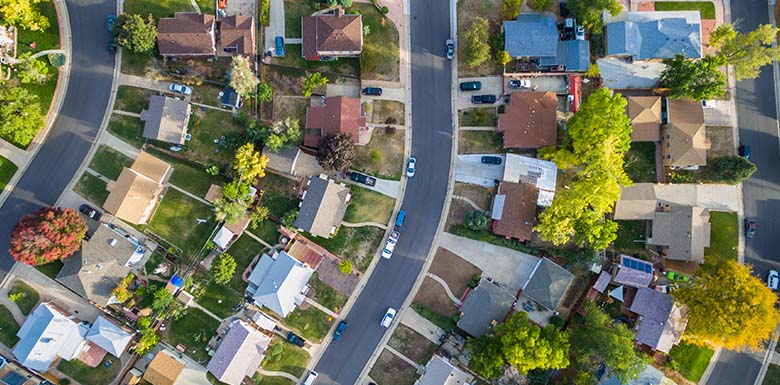5 Questions about Home-Owner Associations in Virginia
Posted by: Copenhaver, Ellet & Derrico

Depending on where you buy your home, you might get a property with a home-owner association (HOA). These organizations enforce rules for properties and residents to keep resale values as high as possible. They require members to pay monthly dues and have a board of peer-elected residents.
And while some HOAs offer public amenities like home maintenance and lawn care, they can become trying when you constantly receive letters about HOA violations you are allegedly committing. These organizations are synonymous with nosy and overreaching neighbors, even if some want to improve their community.
If you plan to buy a house, townhome, or condo, read about five common questions people ask about Virginia home-owner associations.
Can an HOA Place and Enforce a Lien on Your House?
If, for whatever reason, you stop paying your dues or break other rules, then Virginia HOA laws give the group the right to take legal monetary action against you, including placing a lien on your house.
Sometimes, people try to get out of their HOA by not paying their dues, believing that the organization has no authority to take legal action. They usually learn this lesson the hard way when they try to refinance, sell, or face foreclosure.
Now, this does not mean that every penalty they issue is legal. There are plenty of examples of HOA boards placing predatory liens on residents, so find a good real estate lawyer if you have fallen victim to one.
How Should You Communicate with the HOA?
When an HOA member or board begins leaving messages about possible infractions, you might think you can approach them in person to settle the dispute. However, this can lead to “they said, you said” situations, which may ultimately be problematic.
Any time you need to talk with anyone on the board regarding potential legal matters, do it in writing. This could be in a physical letter, email, or text message.
And make sure to save their response for your records. Having evidence to hold HOAs accountable can keep you out of trouble.
How Transparent are HOAs and their Boards?
Virginia law states that HOA boards must have open records, meaning that all communications and meetings must keep a public record that can be reviewed. But within those laws are some well-placed exceptions aiming to limit the transparency of HOA records.
For instance, some HOA boards can meet in “executive sessions,” sessions closed to the rest of the HOA to discuss sensitive matters. However, these closed sessions must be opened back to the rest of the community before any votes or decisions are made.
So, save all your communications and attend as many meetings as possible to prove whether or not a new rule was created correctly and enforced. The more proof you have, the better prepared you are for any real estate matters that you may face within your development.
What Can I do when the HOA Cites Unenforceable laws?
Yes, HOAs have their rules. But so do the city, county, state, and the US Department of Housing and Urban Development (HUD). And despite what the board might say, government rules trump anything else.
If your HOA tries to punish you for a law not in their charter, such as anything regarding solar panels, satellite dishes, or clotheslines, you can fight back. Within their governing documents are rules for appeal processes, and you must follow them to the letter.
Fill out all the paperwork, attend all the meetings, and never be late or miss anything. In some cases, if you get enough fellow residents on your side, you can call for elections to put new people on the board.
Can I Leave the HOA or Avoid It Entirely?
This depends on the covenants, conditions, and restrictions (CC&Rs) document you signed. This form is included in your closing paperwork, and good realtors should explain it to you to know if this right is available.
Sometimes, you can leave the HOA altogether by petitioning your board of zoning appeals or condo association to de-annex your property from the organization. In other cases, you might be able to avoid joining from the start because your home predates the HOA, and you fall into a grandfather clause. In some instances, the HOA lapses, so the matter resolves itself.
Seek Assistance from a Virginia Real Estate Lawyer
If you think you are a victim of a predatory HOA, contact a real estate lawyer who knows Virginia laws and can defend you. Copenhaver, Ellett & Derrico has worked with countless clients facing the same situations as you. Call us at (540) 385-5863 for more information about our services.
